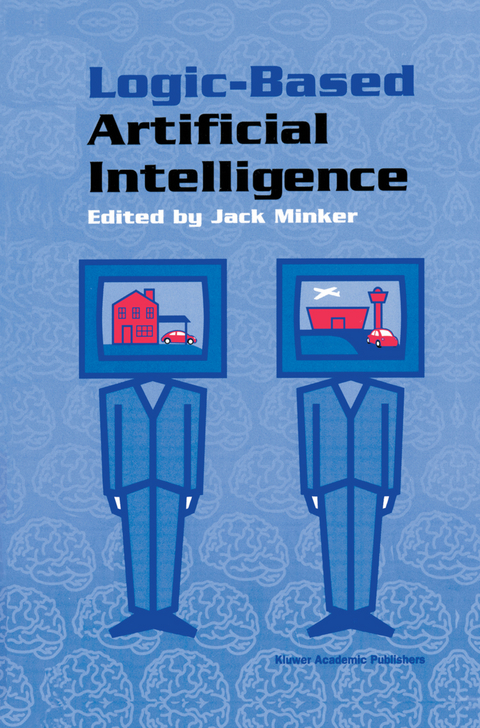
Logic-Based Artificial Intelligence
Springer-Verlag New York Inc.
978-1-4613-5618-9 (ISBN)
I Introduction to Logic-Based Artificial Intelligence.- 1 Introduction to Logic-Based Artificial Intelligence.- II Commonsense Reasoning.- 2 Concepts of Logical AI.- III Knowledge Representation.- 3 Two Approaches to Efficient Open-World Reasoning.- 4 Declarative Problem-Solving in DLV.- IV Nonmonotonic Reasoning.- 5 The Role of Default Logic in Knowledge Representation.- 6 Approximations, stable operators, well-founded fixpoints and applications in nonmonotonic reasoning.- V Logic for Causation and Actions.- 7 Getting to the Airport: The Oldest Planning Problem in AI.- VI Planning and Problem Solving.- 8 Encoding Domain Knowledge for Propositional Planning.- 9 Functional Strips.- VII Logic, Planning and High Level Robotics.- 10 Planning with Natural Actions in the Situation Calculus.- 11 Reinventing Shakey.- VIII Logic for Agents and Actions.- 12 Reasoning Agents in Dynamic Domains.- 13 Dynamic Logic for Reasoning about Actions and Agents.- IX Inductive Reasoning.- 14 Logic-Based Machine Learning.- X Possibilistic Logic.- 15 Decision, Nonmonotonic Reasoning, Possibilistic Logic.- XI Logic and Beliefs.- 16 The Role(s) of Belief in AI.- 17 Modeling the Beliefs of Other Agents.- XII Logic and Language.- 18 The Situations We Talk about.- XIII Computational Logic.- 19 Linear Time Datalog and Branching Time Logic.- 20 On the Expressive Power of Planning Formalisms.- XIV Knowledge Base System Implementations.- 21 Extending the Smodels System with Cardinality and Weight Constraints.- 22 Nonmonotonic Reasoning in???.- XV Applications of Theorem Proving and Logic Programming.- 23 Towards a Mechanically Checked Theory of Computation.- 24 Logic-Based Techniques in Data Integration.
| Reihe/Serie | The Springer International Series in Engineering and Computer Science ; 597 |
|---|---|
| Zusatzinfo | XXIII, 606 p. |
| Verlagsort | New York, NY |
| Sprache | englisch |
| Maße | 155 x 235 mm |
| Themenwelt | Geisteswissenschaften ► Philosophie ► Logik |
| Informatik ► Theorie / Studium ► Künstliche Intelligenz / Robotik | |
| Medizin / Pharmazie | |
| ISBN-10 | 1-4613-5618-0 / 1461356180 |
| ISBN-13 | 978-1-4613-5618-9 / 9781461356189 |
| Zustand | Neuware |
| Haben Sie eine Frage zum Produkt? |
aus dem Bereich


